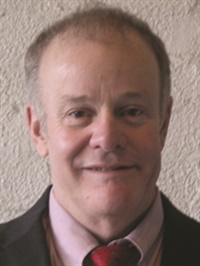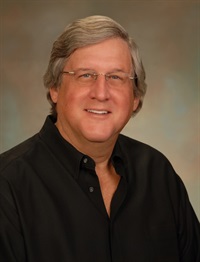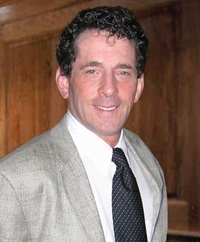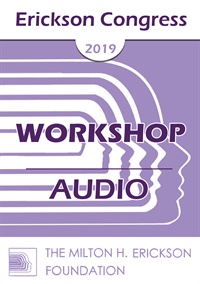IC19 Workshop 17 - Special Symposium: PTSD: Traumatic Sensitization and latrogenic Amplification: Therapeutic Antitheses - John Beahrs, Bill O’Hanlon, Michael Yapko, Jeffrey Zeig
- Average Rating:
- Not yet rated
- Topic Areas:
- Workshops | Post-Traumatic Stress Disorder (PTSD) | Trauma
- Categories:
- Erickson Congress | Erickson Congress 2019
- Faculty:
- John Beahrs, MD | Bill O'Hanlon, MS | Michael Yapko, PhD | Jeffrey Zeig, PhD
- Duration:
- 1 Hour 57 Minutes
- Format:
- Audio Only
- Original Program Date:
- Dec 13, 2019
- License:
- Never Expires.
Description
Description:
“Traumatophobia” is fear of fear itself, sensitizing people to the psychological effects of stressors such as crime, terror, and hurtful communications. Paradoxically, increasing knowledge of trauma has not empowered, but sensitized us to it — thereby amplifying its effects. The Institute of Medicine challenged society to examine this process, and redirect our knowledge toward building resilience. Data for this are well-established, but under-attended. Neutral third parties play a pivotal role, by modulating trauma’s effects through mutual suggestion. Sensitizing interactions foster traumatic re-enactment, and polarize people against one another. Appeasing and counter-traumatizing lead to escalation of traumatic coercion. Validating victimhood and rescuing its targets can regressively destabilize them by unintendedly undermining their agency. Social trends further amplify through enabling, media, selective non-responsibility, and coercive information control. Mitigating interactions shift emphasis from victimhood toward active agency without denying the former, and promote abstaining from re-enactment. Also pivotal are standing firm at one’s locus of control, seeking alternate narratives, and optimizing all parties’ accountability. Promoting constructive discourse over trauma-driven suppression is a fundamental precondition for building resilience.
Credits
Faculty

John Beahrs, MD Related Seminars and Products
John Beahrs, MD, is a psychiatrist retired from the Portland Veteran's Administration Medical Center, and Professor Emeritus, Oregon Health and Science University. A three-time recipient of a Milton H. Erickson Award, Dr. Beahrs developed strategic self-therapy for treating personality disorders and a "shared self-deception hypothesis" of how human minds evolved. He is the author of three books, with two books in progress: Psychotherapy and The Reality Question.

Bill O'Hanlon, MS Related Seminars and Products
Bill O'Hanlon, MS, has written over 30 books, appeared on Oprah with his book Do One Thing Different, and has been a top-rated presenter at psychotherapy conferences all over the world. He was a student of the late Milton H. Erickson and created Solution-Oriented Therapy and Possibility Therapy.

Michael Yapko, PhD Related Seminars and Products
Michael D. Yapko, Ph.D. (professional psychology, clinical specialization), is internationally recognized for his innovative work in applied clinical hypnosis, developing brief psychotherapies, and the strategic treatment of depression. He has been invited to present his work in more than 30 countries across six continents. He is the author of 15 books, including his most recent, The Discriminating Therapist. He is a recipient of numerous awards for his many contributions to the field, including the Milton H. Erickson Foundation Lifetime Achievement Award.

Jeffrey Zeig, PhD Related Seminars and Products
Jeffrey K. Zeig, PhD, is the Founder and Director of the Milton H. Erickson Foundation and is president of Zeig, Tucker & Theisen, Inc., publishers in the behavioral sciences. He has edited, co-edited, authored or coauthored more than 20 books on psychotherapy that appear in twelve foreign languages. Dr. Zeig is a psychologist and marriage and family therapist in private practice in Phoenix, Arizona.


